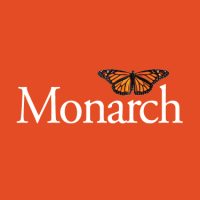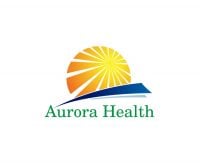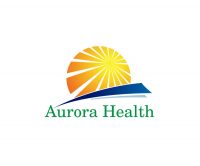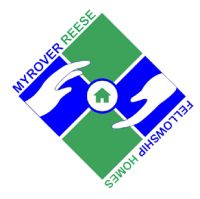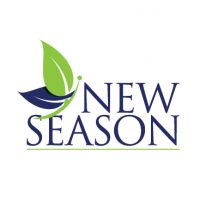Le'Chris Health Systems - Elizabethtown
Drug Rehab Center in Elizabethtown, North Carolina
Le'Chris Health Systems - Elizabethtown is an accredited mental health and dual diagnosis treatment center that offers a broad range of treatments and levels of care.
About This North Carolina Facility
Le'Chris Health Systems - Elizabethtown is an addiction treatment facility located in Elizabethtown, North Carolina. Established in 1996, this facility offers comprehensive services for individuals suffering from dual diagnosis and mental health issues. Le'Chris Health Systems - Elizabethtown is accredited by CARF, an internationally recognized nonprofit organization that ensures high-quality standards in the field of addiction treatment. They accept private health insurance and are affiliated with Le'Chris Health Systems, a reputable organization in the field of addiction treatment.
At Le'Chris Health Systems - Elizabethtown, individuals can access various levels of care for addiction and substance abuse. They provide aftercare support to help individuals maintain their recovery journey after completing treatment. The facility offers dual-diagnosis treatment, which addresses both addiction and underlying mental health conditions simultaneously. Additionally, they provide intensive outpatient, outpatient, and residential levels of care, providing flexible options to suit different needs. Through their comprehensive services, Le'Chris Health Systems - Elizabethtown aims to support individuals in their recovery process and promote long-term sobriety.
Genders
Ages
Modality
Additional
Accreditations

CARF
The Commission on Accreditation of Rehabilitation Facilities (CARF) is a non-profit organization that specifically accredits rehab organizations. Founded in 1966, CARF's, mission is to help service providers like rehab facilities maintain high standards of care.
Conditions and Issues Treated
Dual Diagnosis refers to someone who is both dealing with addiction and another mental health issue.
There are different kinds of Dual Diagnosis: A person who simultaneously experiences both a mental illness and an addiction disorder. Or, a person who experiences one or more coexisting (simultaneous) mental health conditions in addition to a primary substance use disorder.
Some conditions that commonly co-occur with addiction include:
- Personality Disorders (Borderline, Narcissistic)
- Mood Disorders (Bipolar Disorder, Depression, Anxiety Disorder)
- PTSD (Post Traumatic Stress Disorder), OCD (Obsessive Compulsive Disorder), ADHD (Attention Deficit Hyperactivity Disorder)
- Schizophrenia, Psychosis, Hallucinations, Delusions
Levels of Care Offered at Le'Chris Health Systems - Elizabethtown
This center offers a variety of custom treatment tailored to individual recovery. Currently available are Aftercare Support, Dual-Diagnosis, Intensive Outpatient, Outpatient, Residential, with additional therapies available as listed below.
Outpatient addiction treatment is beneficial for people who are able to function well in their day-to-day lives. It is recommended for people who are not yet ready to end their relationships with friends or family members who might be encouraging drug and alcohol use.
Intensive outpatient treatment is beneficial for:
- People who are able to attend treatment more than 3 times per week.
- People who do not meet the criteria for inpatient treatment.
- People who are able to contribute to their own recovery outside of the treatment center.
- People who are motivated towards recovery.
- People who are able to overcome addiction on their own without the need for higher levels of care.
Outpatient treatment programs provide drug and alcohol addiction treatment through individual sessions with a counselor, group therapy, 12-step meetings, and other activities to help individuals gain sober living skills. Most programs are designed for those individuals who have completed a medically supervised detoxification program and provide opportunities for clients to begin the process of early recovery.
Outpatient programs also offer a level of medical support as needed and psychological backing through therapy. Clients are encouraged to live at home, though there may be some flexibility regarding this requirement based on the circumstances and needs of each patient.
Outpatient treatment is perhaps the most common type of dual diagnosis program available. It does not pose a significant financial burden on patients. However, it is essential to note that outpatient treatment does not provide the support and supervision given in residential programs. Some addicts may need this level of support to maintain their sobriety.
Residential treatment programs are those that offer housing and meals in addition to substance abuse treatment. Rehab facilities that offer residential treatment allow patients to focus solely on recovery, in an environment totally separate from their lives. Some rehab centers specialize in short-term residential treatment (a few days to a week or two), while others solely provide treatment on a long-term basis (several weeks to months). Some offer both, and tailor treatment to the patient’s individual requirements.
People who have completed a rehab program often need continued support from the addiction treatment team in order to remain abstinent from drugs and alcohol. Aftercare can be beneficial for personal, social, and emotional growth.
Common aftercare options include:
- Individual Therapy – this type of addiction counseling is available on a one-on-one basis. This can be beneficial for people with a high degree of emotional turmoil and a strong desire to overcome addiction.
- Group Therapy – this type of addiction counseling is available in a group setting. This type of treatment can be beneficial for people who are unable to attend regular therapy appointments due to other responsibilities.
- Family Therapy – this type of addiction counseling is available to the family members of addicts. This can be beneficial for people who are unable to fully comprehend what their loved ones are experiencing due to addiction.
Therapies & Programs
Therapy sessions focused on the individual addict can provide much-needed guidance as they work toward overcoming their addiction. These types of sessions typically involve guidance from a therapist, who will help addicts identify and process their feelings and cravings.
During these sessions, addicts may develop plans for coping with the triggers that typically lead to relapse and learn how to avoid those triggers during their recovery process.
The main goal of family therapy for drug addiction is to create an environment where communication can occur without judgment, hostility, or blame that often occurs within a family.
Family therapy is a type of group problem-solving that aims to improve communication and relationships between the patient, their family, and sometimes friends. The therapist is with the family as they learn to communicate with each other differently, especially with the addict when s/he is using.
The family can learn to reduce their enabling behavior or rally together and support each other during tough times. The patient also learns how to deal with their addiction and maintain sobriety while interacting with the family.
Different types of addiction treatment services are available. Within this article, group therapy is of interest due to its high success rate compared to individual therapy. Group therapy settings are beneficial because they allow recovering addicts to build a strong support network.
Benefits of group therapy are:
- Reduces feelings of isolation
- Immediate access to social support in the form of fellow addicts in recovery
- Lowers risk of relapse
- Increases rate of sobriety
- Builds coping skills that can be applied to everyday life
Trauma Therapy is a form of therapy that involves working with a patient to help them process and understand the past trauma(s) in their life. The idea behind it is that while some people can experience traumatic events and not have lasting psychiatric symptoms, many others will. In these cases, memories of the event get hidden from consciousness but continue to influence how the person processes and copes with things in their life. They may avoid situations that resemble what happened or become suddenly angry or irritated to a situation that reminds them of a past event.
With the help of a therapist, people can go back over memories and experiences. This helps them understand why they are having problems coping with certain situations and how they can change how they think and react to things. This therapy is typically done using techniques such as visualization, discussion, and writing down thoughts and feelings.
Trauma therapists will work with clients to help them understand their past and present relationships. Many times, patients may believe that something is inherently wrong with them or that they are unworthy of love. A therapist aims to correct these negative feelings and behaviors by helping the person realize that their actions do not reflect who they truly are.
One of the main goals of trauma therapy is to help clients express their emotions and talk about what they are feeling. This benefits both to increase awareness of how certain events have impacted them in the past and enables patients to realize that they can make changes in their lives.
Cognitive Behavioral Therapy (CBT) is used by drug treatment centers to help addicts comprehend the causes of their substance abuse and the consequences that follow. Through CBT, clients learn to recognize and avoid high-risk situations and cope with challenging situations when they arise.
CBT treatment often includes a combination of individual therapy, group therapy, lectures, and other activities. The treatment’s goal is to help addicts gain self-control and maintain abstinence from drugs and alcohol over the long term so that an addict can get sober and lead a more productive life.
CBT is particularly effective in helping people overcome their drug problems, especially people whose drug abuse is motivated by self-defeating beliefs and emotions.
Those struggling with addiction in North Carolina can benefit from learning certain life skills. It is not as simple as quitting drinking or taking drugs and thinking that the hard part is over. Being sober means living a whole new way of life. Many recovering addicts have found that they need to develop talents like time management, organization, communication skills, socialization skills, and self-esteem to make their life in sobriety work.
Drug and alcohol addiction can lead to a breakdown in life skills. Learning certain life skills can help those who are struggling with addiction. Life skills training at Le'Chris Health Systems - Elizabethtown in Elizabethtown, NC teaches patients skills such as time management, budgeting, and social abilities to improve their quality of life and prevent relapse.
An addict’s life skills are maladaptive, meaning they are counterproductive. An addict may have learned poor time management skills growing up, have a hard time budgeting money, or be socially awkward. An addict’s poor life skills can lead to relapse and the inability to achieve long-term sobriety. Life skills training teaches patients effective coping mechanisms, which can help them live a clean and sober life.
Patient Experience
Creative Arts
Creative Arts Therapy (CAT) is a form of art therapy that uses creative activities such as music, painting, drama, and writing to help patients explore their feelings. It can help people struggling with addiction or mental illness access their inner voices and discover their unique potential. It is particularly effective with people who may not respond to other forms of therapy or lack the motivation to take part in more traditional forms of counseling.
Experiential Therapy at Le'Chris Health Systems - Elizabethtown
Experiential therapy is a form of psychotherapy where patients are asked to engage in activities such as role-play, poetry writing, music composition, exercising, or journaling to help process intense feelings. The aim of the therapy is to help patients access deeper, often hidden emotions by helping them explore their own body and mind.
Payment Options Accepted
For specific insurance or payment methods please contact us.
Is your insurance accepted?
Ask an expert, call (888) 674-0062
Le’Chris Health Systems Associated Centers
Discover treatment facilities under the same provider.
- Le'Chris Health Systems - Rocky Mount in Rocky Mount, NC
- Le'Chris Health Systems - Morehead City in Morehead City, NC
- Le'Chris Health Systems - Wilson in Wilson, NC
- Le'Chris Health Systems - Morehead City in Morehead City, NC
- Le'Chris Health Systems of Greenville - Outpatient Services in Greenville, NC
Learn More About Le’Chris Health Systems Centers
Additional Details
Specifics, location, and helpful extra information.
Elizabethtown, North Carolina 28337 Phone Number(910) 879-9996 Meta DetailsUpdated November 25, 2023
Staff Verified
Patient Reviews
There are no reviews yet. Be the first one to write one.
Elizabethtown, North Carolina Addiction Information
North Carolina ranks 29th in the nation for overall substance abuse. Many of the drugs abused in the state are illicit, and many of these are opioids. Prescription opioids are readily available due to the high rates of medical workers prescribing them. The number of prescriptions has increased tenfold since the 1980's. Opioid overdoses are the most common type of death in North Carolina.
Treatment in Nearby Cities
- Albemarle, NC (103.5 mi.)
- Spring Lake, NC (43.2 mi.)
- Elizabethtown, NC (0.5 mi.)
- Pineville, NC (133.7 mi.)
- Midway Park, NC (72.2 mi.)
Centers near Le'Chris Health Systems - Elizabethtown
The facility name, logo and brand are the property and registered trademarks of Le'Chris Health Systems - Elizabethtown, and are being used for identification and informational purposes only. Use of these names, logos and brands shall not imply endorsement. RehabNow.org is not affiliated with or sponsored by Le'Chris Health Systems - Elizabethtown.



